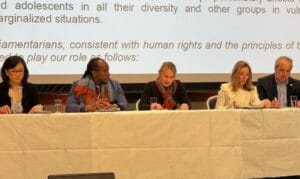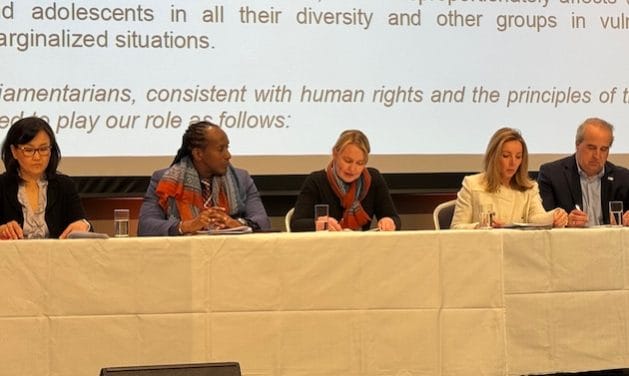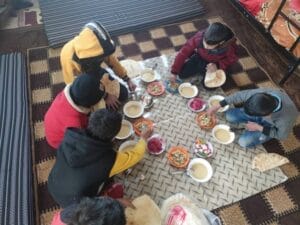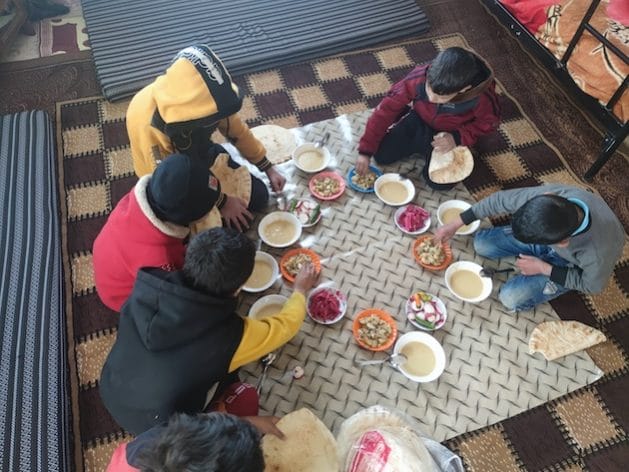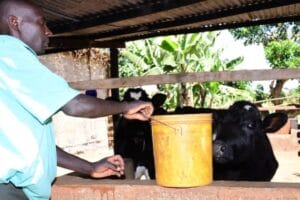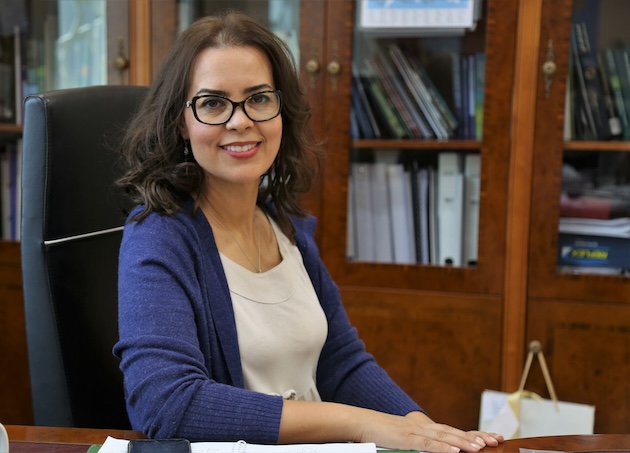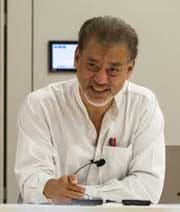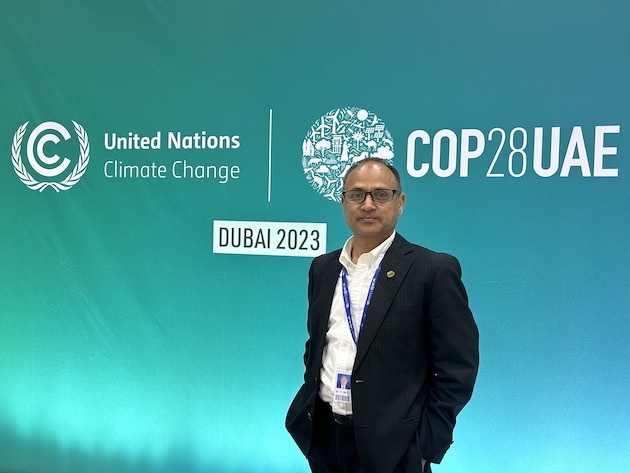
Active Citizens, Civil Society, Conferences, Development & Aid, Editors’ Choice, Featured, Headlines, Poverty & SDGs, Sustainable Development Goals, TerraViva United Nations, Youth Thought Leaders
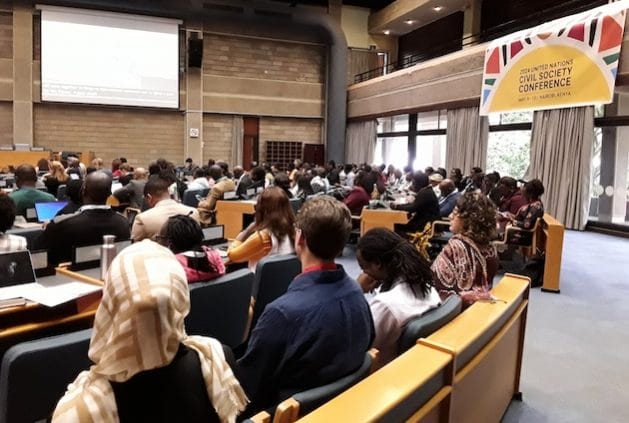
The United Nations Office at Nairobi is hosting the 2024 United Nations Civil Society Conference on May 9 and 10, under the theme Shaping a Future of Global and Sustainable Progress. Credit: Joyce Chimbi/IPS
– The world is neither on track to meet the Sustainable Development Goals (SDGs) nor is it leveraging emerging opportunities to effectively address global concerns such as extreme hunger, poverty, conflict, and climate change. Global concerns have outpaced existing structures for international cooperation and coping.
To forge a global perspective, the United Nations Office in Nairobi is currently hosting the 2024 United Nations Civil Society Conference under the theme Shaping a Future of Global and Sustainable Progress. Bringing together more than 2,000 participants from civil society organizations, academic institutions, think tanks, member states, private sector companies, UN entities, change-makers, and other relevant stakeholders from across the globe.
“That civil society engagement remains a critical cog in the wheel of development is well established. Greater collaboration between civil society organizations, governments, and the private sector can therefore not be more urgent at this time as we gear up for the Summit of the Future,” says Carole Ageng’o, Global Initiatives Lead & Africa Regional Representative at HelpAge International.
“Indeed, civil society participation will contribute greatly towards meeting the aspiration of an international system that is better prepared to manage the challenges we face now and, in the future, for the sake of all humanity and for future generations.”
Since 1947, sixty-eight civil society conferences have resulted in successful outcomes due to previous interactions with civil society organizations. The ongoing conference is the premier event on the civil society calendar at the United Nations and the first of the UN’s civil society conferences to be held in Africa.
Born in Zimbabwe and currently working in South Africa as a human rights defender, Constance Mukarati told IPS that the role of civil society organizations and, more so, human rights defenders cannot be overstated towards ensuring that no one is left behind.
“For us, SDG 5 is really SDG 1. As a matter of urgency, women and girls everywhere must have equal rights and opportunities. We are still in an era where girl child education is not a priority and a gathering such as this is an opportunity for a revolution in how we think about issues of national and global concern, how we talk about these issues, who is in the room and how we execute and implement commitments towards sustainable development,” says Mukarati from the African Initiative of Women Human Rights Defenders.
The ongoing gathering of civil society and other stakeholders is on track to provide preliminary discussions and data ahead of the world’s leaders’ Summit of the Future on September 22–23, 2024, at the UN Headquarters in New York. The Summit is part of a monumental effort to reset global cooperation towards accelerating efforts to meet our existing international commitments and take concrete steps to respond to emerging challenges and opportunities.
Ultimately, the Summit of the Future is about rethinking what multilateralism means in a world characterized by plummeting levels of trust in public institutions, glaring wealth inequalities, and a majority of the world’s population in underdeveloped and developing nations being left furthest behind, falling deeper into extreme hunger and poverty. To address global concerns, the Summit will produce three international frameworks: the Pact for the Future (available as a zero draft), the Global Digital Compact, and the Declaration on Future Generations.
“It is highly urgent that the UN systems relook and redesign how they engage its global citizenry so that the citizens can in turn engage the UN more effectively. This is what is needed to bring the SDGs back on track. What are people saying about the multiple challenges they face today? There is a feeling within the civil society movement that governments’ voices are prioritized within the UN system. This engagement is unique and highly relevant for our voices as activists and human rights defenders, which will inform and influence the direction that the Summit of the Future takes,” Eric Omondi, a Nairobi-based activist, told IPS.
This is a historic gathering aimed at galvanizing collaboration and reinforcing civil society organizations engagement in sustainable development. “We recognize that our generation stands at a critical junction where every action we take can significantly shape the future of our shared planet,” said Florence Syevuo, Executive Director, SDG Kenya Forum, and Co-Chair, Coalition for the UN We Need, Nairobi.
She stressed that the need to recognize the urgency of addressing global concerns such as climate change has never been more tangible as the effects of human interactions with nature become even more evident, underpinning why the outcome of the conference matters to all.
The Civil Society Conference and the Summit of the Future are critical platforms for deepening the engagement of citizens in international cooperation. As a prelude to the Summit of the Future, the Civil Society Conference features in-depth dialogues, a variety of workshops, and exhibits centered on three main objectives: inclusivity, impact, and innovation.
Inclusivity helps broaden the scope of discourse on global issues by enhancing the visibility and impact of diverse voices. On impact, participants are shaping global multi-stakeholder coalitions to advocate for and push the key issues that will be the outcome of the September Summit of the Future. On innovation, the two-day gathering is redefining the interaction between civil society and intergovernmental processes, showcasing a new model of collaboration that spans generations and sectors.
“The inclusion of youths and young voices in the SDG processes and other related commitments must become a priority. I recently completed my studies in law at Kampala International University and I intend to use my legal knowledge to amplify the most pressing problems facing young people in the global south and the communities in which they live,” Kiconco Shallom Esther, a youth participant from Uganda, told IPS.
As the curtain fell on the first day of the landmark civil society conference, there was consensus around the need to promote civil society’s insights and initiatives to bolster the Member State-led Summit of the Future process. Further emphasizing that a reinvigorated, organized civil society group can more effectively hold governments and powers accountable for progress towards a just, fair, and equitable shared future.
IPS UN Bureau Report

